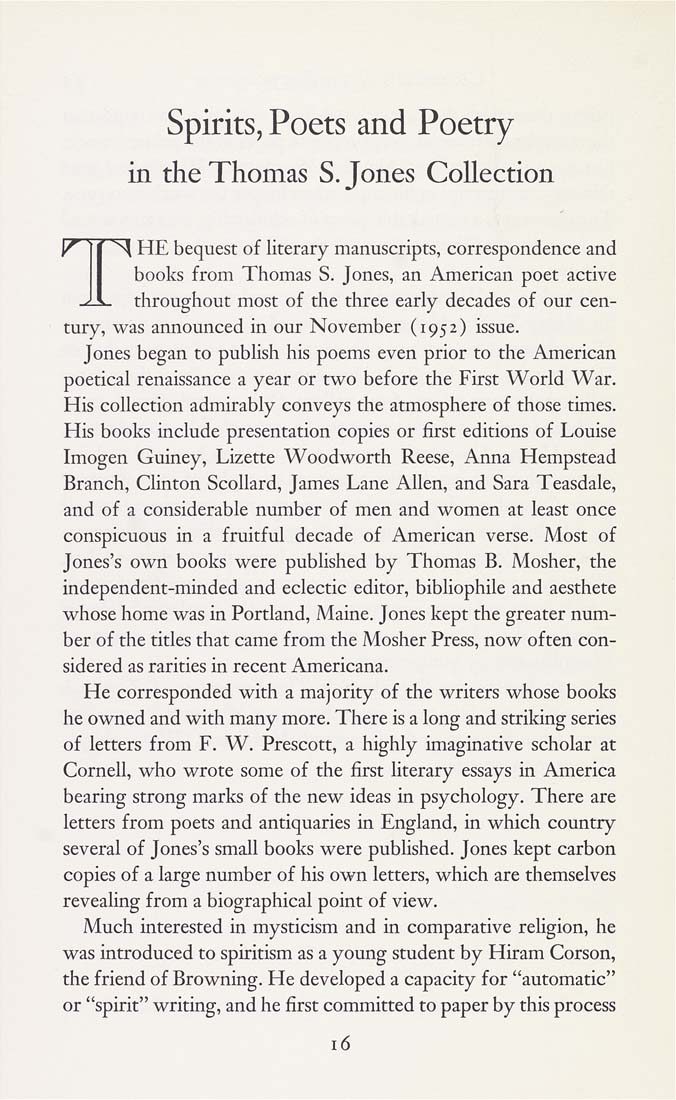Columbia Library columns (v.2(1952Nov-1953May))
(New York : Friends of the Columbia Libraries. )
|
||
|
|
|
|
| v.2,no.3(1953:May): Page 16 |

spirits, Poets and Poetry in the Thomas S. Jones Collection T K" ]f ^ HE bequest of literary manuscripts, correspondence and books from Thomas S. Jones, an American poet active throughout most of the three early decades of our cen¬ tury, was announced in our November (1952) issue. Jones began to publish his poems even prior to the American poetical renaissance a year or two before the First World War. His collection admirably conveys the atmosphere of those times. His books include presentation copies or first editions of Louise Imogen Guiney, Lizette Woodworth Reese, Anna Hempstead Branch, Clinton ScoUard, James Lane Allen, and Sara Teasdale, and of a considerable number of men and women at least once conspicuous in a fruitful decade of American verse. Most of Jones's own books were published by Thomas B. Mosher, the independent-minded and eclectic editor, bibliophile and aesthete whose home was in Portland, Maine. Jones kept the greater num¬ ber of the titles that came from the Mosher Press, now often con¬ sidered as rarities in recent Americana. He corresponded with a majority of the writers whose books he owned and with many more. There is a long and striking series of letters from F. W. Prescott, a highly imaginative scholar at Cornell, who wrote some of the first literary essays in America bearing strong marks of the new ideas in psychology. There are letters from poets and antiquaries in England, in which country several of Jones's small books were published. Jones kept carbon copies of a large number of his own letters, which are themselves revealing from a biographical point of view. Much interested in mysticism and in comparative religion, he was introduced to spiritism as a young student by Hiram Corson, the friend of Browning. He developed a capacity for "automatic" or "spirit" writing, and he first committed to paper by this process 16 |
| v.2,no.3(1953:May): Page 16 |







